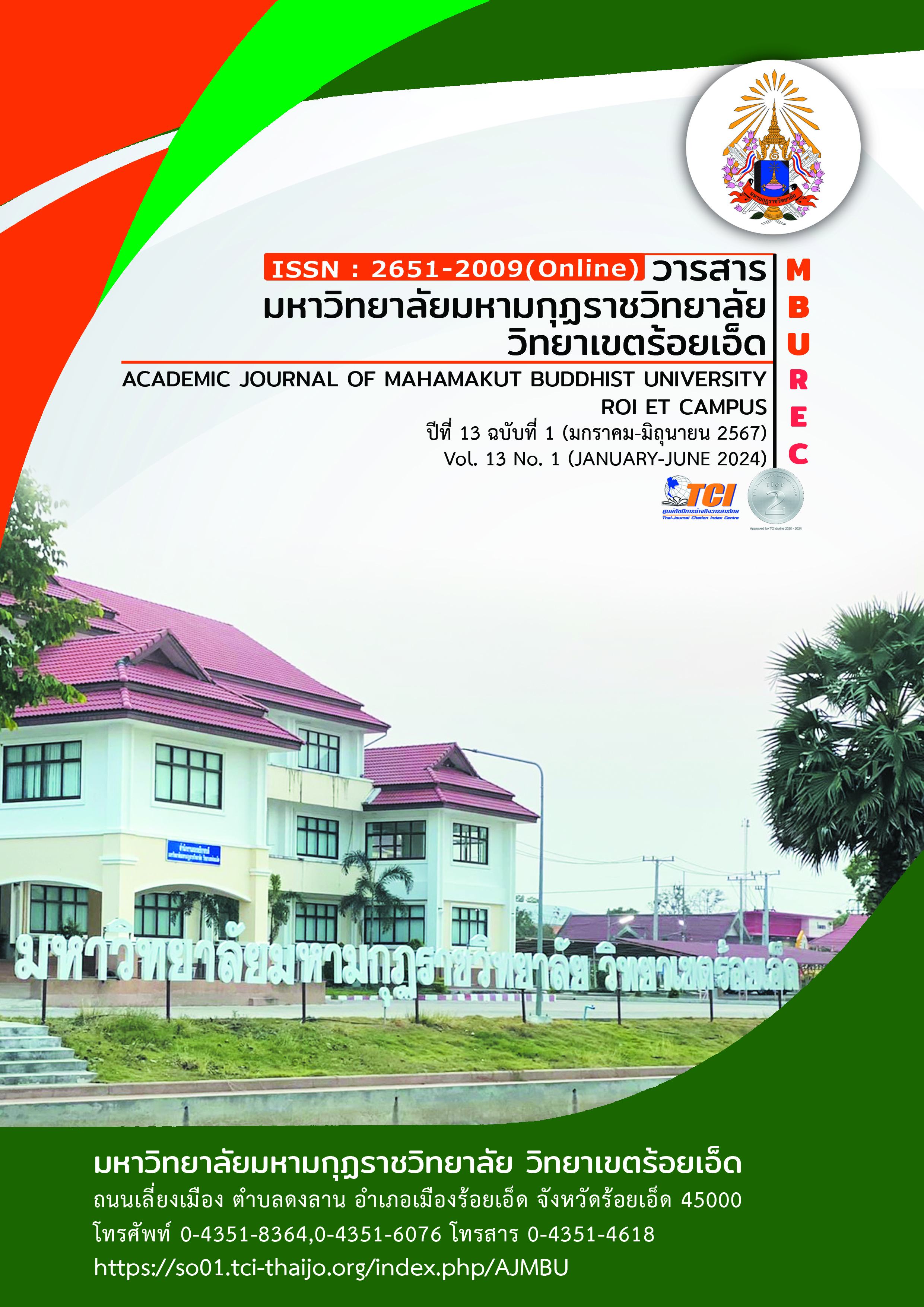STRATEGIC PLAN FOR HALAL TOURISM BRAND DEVELOPMENT FOR MUSLIM MARKETS IN BANGKOK, THAILAND
Main Article Content
Abstract
This research aims to 1) investigate the potentials of Bangkok metropolitan to develop integrated sustainable creative halal tourism 2) create the strategic plan to develop halal tourism in Bangkok. 3) evaluate the implementation of the pilot project of the strategic plan in a community in Bangkok. The research uses mixed research method: qualitative research as the main research while quantitative research as supporting researched. The research instruments are: community study checklists. Tourism resource audit checklists, a structured in-depth interview and focus group form and questionnaires. Qualitative data are collected from 32 key informants from public, private, people and tourist sectors. Data are collected, verified and analyzed with triangulation and content analysis while the quantitative data are collected from 400 respondents belonging to public, private, people and tourist sector, Statistics used to analyze data are: percentage means and standard deviation.
The findings of the research are: 1) Bangkok has outstanding resource and sustainable management potentials as well as people participation and environmental awareness activities potentials. 2) In terms of the Vision, Bangkok will be the World Halal Tourism Hub with 4 positioning brands: brand N°1: River Cruising in Bangkok, Venice of the East, brand N°2: Visit Bangkok, vibrant creative Economy City, brand N°3: Come to Bangkok: World cosmopolitan City to live with people in the peaceful multi-cultural society, brand N°4 visit Bangkok, splendid city of Art and cultural Heritage. 3) The evaluation of the pilot project in Bang Or Mosque Community reveals Tourists' satisfaction of the familiarization Trip, learning Islamic law and way of life while Bang Or Mosque Community are convinced that the Strategic plan's vision provides excellent roadmap for the community to fulfil prospective sustainable halal Tourism development.
Article Details

This work is licensed under a Creative Commons Attribution-NonCommercial-NoDerivatives 4.0 International License.
References
พยอม ธรรมบุตร. (2558). เอกสารประกอบการสอนวิชาสัมมนา 2. กรุงเทพมหานคร : มหาวิทยาลัยพะเยา.
พยอม ธรรมบุตร. (2560). เอกสารประกอบการสอนวิชาปรัชญา แนวคิด ทฤษฎีในการจัดการการท่องเที่ยว. กรุงเทพมหานคร : มหาวิทยาลัยพะเยา.
สุภางค์ จันทวานิช. (2539). วิธีวิจัยเชิงคุณภาพ. กรุงเทพมหานคร : สำนักพิมพ์แห่งจุฬาลงกรณ์มหาวิทยาลัย.
สุภางค์ จันทวานิช. (2552). การวิเคราะห์ข้อมูลในการวิจัยเชิงคุณภาพ. กรุงเทพมหานคร : สำนักพิมพ์จุฬาลงกรณ์มหาวิทยาลัย.
อรพรรณ จันทร์อินทร์, เพียงพิศ ศรีประเสริฐ, จิราภา ชาลาธราวัฒน์, Oraphan Chanin, Piangpis Sriprasert และ Jirapa Charatharawat (2556). การพัฒนาศักยภาพการท่องเที่ยวฮาลาลฝั่งทะเลอันดามันของประเทศไทยสำหรับนักท่องเที่ยวกลุ่มประเทศมุสลิม: ร่างรายงานฉบับสมบูรณ์. กรุงเทพมหานคร : สำนักงานคณะกรรมการส่งเสริมวิทยาศาสตร์ วิจัยและนวัตกรรม.
Ministry of Tourism and Sports. (2017). The 2nd National Tourism Development Plan (2017-2021). Bangkok : Office of Printing Works of the War Veterans Organization.
Office of the National Economic and Social Development Board. (2017). The 12th National Economic Development Plan (2017-2021). Bangkok : Office of the National Economic and Social Development Board.
United Nations. (2002). World Population Ageing: 1950 – 2050. New York : U.S.A..
World Tourism Organization. (2017). UNWTO Annual Report 2017. Retrieved 20 June 2021. From https://doi.org/10.18111/9789284419807
WTTC. (2015). Global benchmarking travel & tourism. Retrieved 20 June 2021. From http://www.wttc.org/media/files/reports/benchmark%20reports/regional%20results%202015/glob al%20 benchmarking%20report%202015.pdf


